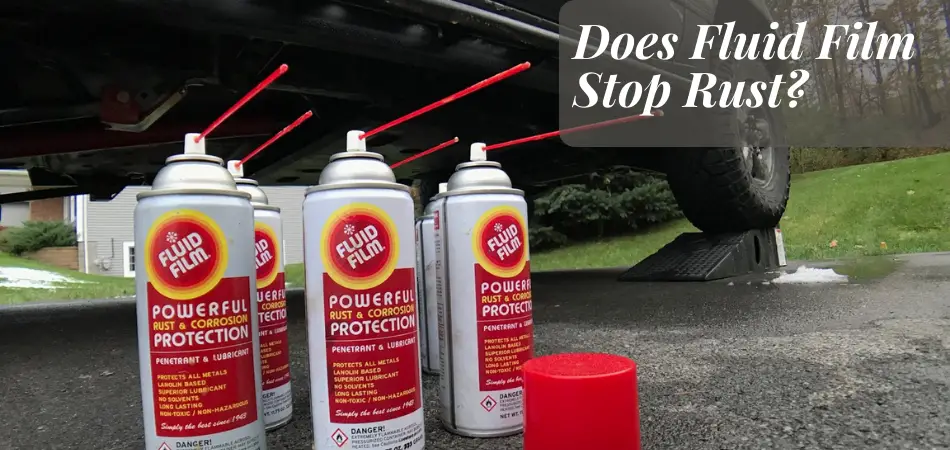There are different levels of challenges we face in our day-to-day activities. Rust is a nightmare most people do not want to see when it comes to automobiles and some other metals we use. While prevention is the right thing to do, some products can help stop the oxidization. The question is, does fluid film stop rust?
Yes, the fluid film stops rust and prevents rust from spreading to other parts of the metals. While not manufactured to remove rust, Fluid films can penetrate rusted metals and make removing rust easier.
Fluid Film is a rust inhibitor and excellent at penetrating deep into rusted or corroded surfaces and provides long-term protection against rust, salt, and corrosion. It settles in the small crevices where rust starts and prevents future rust from even forming.
If you desire to know more about fluid film and its effect on protecting and preventing rust, then you are in the right place. Just keep reading.
Contents
What Is Fluid Film?
Fluid film is an excellent lanolin-based type of rusting preventive lubricant which many manufacturing and extractive films use. Fluid film is a Non-toxic and thixotropic liquid which works in highly corrosive environments.
In recent times, it is used in the automotive and aerospace industry for home care. You can use fluid film in power plants, gas installations and agricultural plantations.
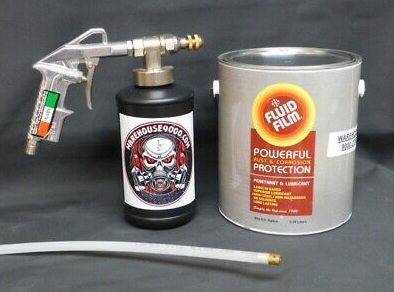
It is made from refined oil and Compounds which makes it good to control rusting, corrosion and water displacement.
Does Fluid Film Stop Rust?
From all indications and experience, I can tell that fluid film can help stop the oxidation of rust. The Fluid Film is a non-hardening rust and corrosion preventive coating applied by spraying, brushing, or dipping.
It protects iron and steel from rust and corrosion through the coating. This protective coating can also be used on aluminum, copper, brass, bronze, and metals. Also, the fluid film uses solids to protect against corrosion; thus, the treated surface does not attract dirt as an oily film does.
Also, the fluid film does not dry out or become brittle with age. The science behind Fluid Film’s ability to stop rust is very simple. Fluid Film forms a non-drying, flexible, waxy film once it contacts metal.
This barrier displaces water and seals out moisture, eliminating the main cause of electrolysis. Therefore, without an electrolyte (moisture), electrolysis simply cannot occur.
In addition, while Fluid Film stops rust in its tracks and penetrates even to recessed areas of equipment to displace moisture, it does not dry out or form a hard crust or scale. Rather, Fluid Film continues to work as long as it remains on the material.
Features of Fluid Film
This high-quality rust-preventive lubricant has the following features:
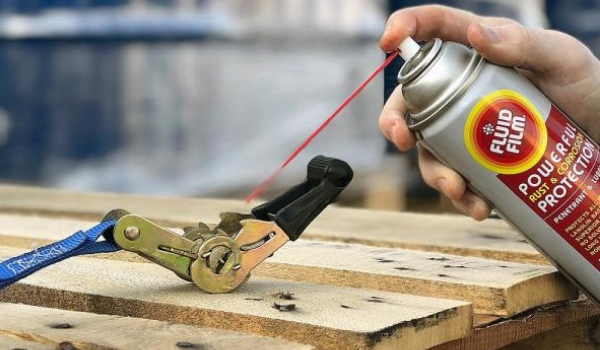
- Prevent Rust and Corrosion: Fluid film works effectively for controlling the rust process in metals and irons. Also, it can be used on copper and brass to stop corrosion.
- Provide Superb Protection and Great Lubrication: Are you looking for a top lubricant which offers prolonged protection for metals, then Fluid film is ideal for you?
- Environmental Friendly: Fluid film is non-toxic, free of solvents and blends well in all environments. It can be used in any environment and metals.
- Don’t Wash off Easily with Water: Fluid film prevents rust and cannot be washed away quickly even during the rainy season. It is ideal in wet environments because it can cope with harsh weather conditions.
- Available in Many Sizes: It doesn’t matter the size you want, it fits perfectly well into what you want. For personal use, you can get the small size, while those who need it for industrial use, can buy the bigger parks.
How Can You Prevent Rust from Happening?
While fluid film works well to protect rust and corrosion, the best thing is prevention. Prevention is a cheaper option and their are some ways to prevent rust:

- Alloy: Using alloys like stainless is a great way to stop rust or slow it down. However, while stainless steel can’t be used for all applications, they work for many.
- Using Oil: You can apply oil on metals to prevent rust, because it stops water from reaching the metal. However, sometimes an oily metal surface can be a problem to some tools and cause environmental health.
- Apply a Dry Coating: There are some unique rust preventive protections which work effectively and form a barrier on metals. They are particularly effective for metal appliances which oxidize easily.
- Painting: Using a good paint can slow down rusting in metals. Paint stops moisture from spreading to all parts of the metals.
- Good Storage: To prevent rust, you could also store all metals and irons in an environment with low-moisture or inside an area with controlled humidity. You could also use desiccant drying Compounds in the storage to help keep your metals from rusting.
- Galvanizing: You can use zinc to galvanize irons or steel to stop rusting. This works because zinc corrodes slower than steel and iron.
- Blueing: Blueing is a rust preventive method which creates an extra layer of magnetite over irons. To complete Blueing, you must continue to oil your metal till it turns black or blue.
- Powder Coating: Using Vinyl, acrylic, epoxy and many other substances can help prevent water from reaching metals. This helps to prevent rust from getting to the metal.
- VCI Packaging: A chemical compound known as Vapor Corrosion Inhibitors can be infused into several metal surfaces for protection from rust.
How to Remove Rust from Metals?
While it is important to prevent rust, when it happens, you have to get rid of it. Here are some ways to remove rust:
Use White Vinegar
There isn’t anything vinegar cannot clean, including removing rust. To remove rust from metals using vinegar, dip the item into a bowl filled with Vinegar and wait for 6 hours.
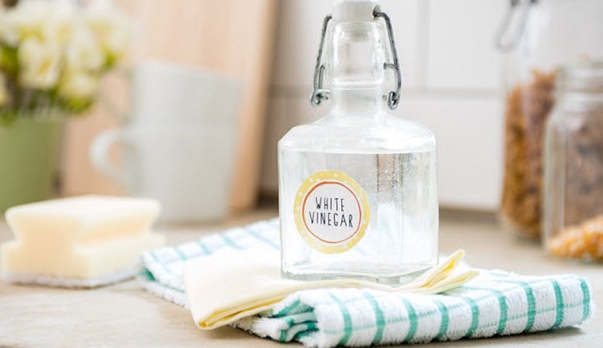
Once they have been soaked deeply, remove it and scrub the rust away with a brush. Repeat this process several times to remove the rust completely.
Baking Powder Solution
Another rust-removal method is baking powder especially if the rusted metal is at the early stages. You can apply this, by mixing the soda with water to form a thick solution.
Then paste the thick paste all over the affected metal. Leave for about 45 minutes to an hour, then get a steel wool and scrub. Use water to rinse thoroughly
Using Lemon and Salt Solution
You can use this method to remove rust. It involves combining the acid nature of lemon with the abrasiveness. Allow the lemon and salt mixture to sit for three hours. Use a lemon rind to scrub the rusted parts, then rinse with water.
Potato and Dish Soap
Many people don’t know that potatoes can remove rust. Potatoes have oxalic acid which is an active ingredient in most cleaning products. The oxalic acid helps to dissolve rust while dish soap helps wash the rust away.
Citric Acid
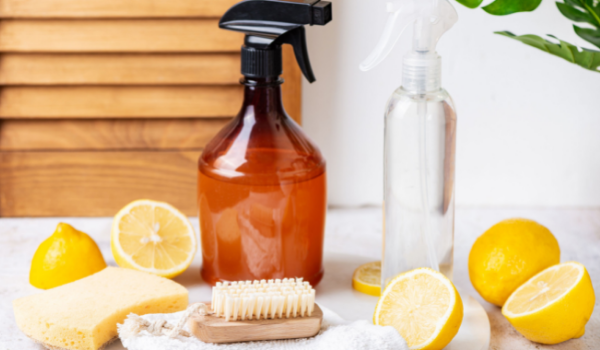
You can use citric acid to get rid of rust, and it can be found in many stores. Asides removing rust, it could help remove paints and other stubborn coatings.
Just put two spoons of citric acid in hot water and dip the rusty metal inside. Leave for 8 hours and scrub off with a sponge.
Using Chemical Solutions
There are several chemical solutions to remove rust like metal glo, naval jelly and lime-a-way. These offer a faster way to get rid of rust and corrosion.
Conclusion
Fluid film remains a good chemical solution which protects metals and prevents them from rusting quickly. So Does fluid film stop rust? Yes, Fluid film stops and helps remove rust from metals. Fluid film wasn’t particularly made to prevent or remove rust, but it does a good chop.
You can prevent rust by using several solutions like blueing, galvanizing, painting and coating with oil. Eventually, when your metal is corroded or has gotten rusty, you could use several rust-removal solutions like vinegar, potato, lemon or some good chemicals like Naval jelly and Metal glo.

